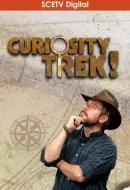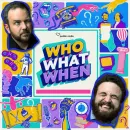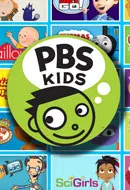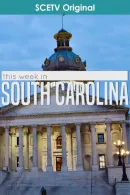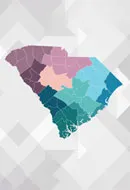“Human trafficking does present a threat in South Carolina,” says Marie Sazehn.
Sazehn serves as an Assistant Attorney General who understands the crime and its implications.
“A lot of times when people think of human trafficking, it is something they associate with big Hollywood movies, like “Taken,” or something that only happens overseas, to people that live abroad, or that are smuggled into the country. However, I assure you that South Carolina citizens are trafficking South Carolina-born victims in our state.”
Sazhen was part of the team responsible for securing the first human trafficking convictions in South Carolina in 2015.
The case would be the first in which she would speak face-to-face with a trafficking victim. The traffickers, a man and a woman, would lock the victim’s toddler son in the bedroom of the apartment where she was being held. The traffickers would threaten to kill her son if she did not have sex with men for money.
“It was a very sad story, and different from anything we had heard before. I think we all needed some time to process the information afterward,” Sazehn recalls.
“But it’s motivating, knowing you’re moving forward to put traffickers like that in prison, and to help victims like this one. There are a lot of individuals in the state working together to do this, and this case was no exception.”
Human trafficking, sometimes referred to as “modern-day slavery,” has come under the scrutiny of the public eye nationally and locally. The practice involves depriving human beings of basic human rights by means of force, fraud, or coercion, for exploitation, including forced labor or sex work.
The Polaris Project, a group that works with the National Human Trafficking Resource Center (NHTRC) operates a human trafficking hotline. In 2015 the hotline received 21,947 calls, 1,535 webforms, and 1,275 emails, with a total of 5,544 cases of human trafficking.
Four thousand one hundred and thirty-six of those cases were related to sex trafficking. Seven hundred and twenty-one were related to labor trafficking. The number of cases in the United States is increasing each year, according to the NHTRC and Polaris.
Sazehn uses this analogy to explain why people are capable of trafficking and why it is a threat:
“If you have an individual that is selling drugs, and this person goes out at the start of the night with five bags of drugs, when he sells those five bags, he is out of product. No more product means no more money. So, he has to go back to a supplier, to his home, etc., to renew. Also, if he gets caught by law enforcement with those drugs before they are sold, there is evidence against the criminal.”
Sazehn goes on, “With human beings, there is no need to renew your resource – traffickers can resell a human being in one night, over and over and over. It’s lucrative and easier. To traffickers, human beings are reusable commodities. Additionally, no hard evidence is in the trafficker’s pocket that night. A lot of times, though, the victims will catch heat for various things.”
Human trafficking is a global industry. The International Labor Organization estimates trafficking and forced labor are a $150 billion industry worldwide, with 20.9 million victims. Many Americans have misconceptions surrounding human trafficking, feeling the practice mainly happens overseas. But, as human trafficking is targeted and fought, many more instances are reported and remedied in the United States.
“While this is a crime that still involves immigrant victims, the majority of victims in cases—particularly sex trafficking cases I have worked on—include minors, ages 15-16 that go to schools around the state,” Sazehn continues.
“Sometimes these are kids that are runaways that get wrapped up with sex traffickers; sometimes they are in the foster care system; and sometimes they are simply just looking for affection from anyone and predatory traffickers take advantage of this.“
The crime is not limited to large city centers. Human trafficking is happening in the state of South Carolina as well. Polaris and NHTRC report in South Carolina, since 2007, the hotline has identified 512 victims categorized as “high,” meaning there are high levels of risk and trafficking. Another 397 victims are categorized as “moderate,” meaning several indicators of trafficking have been identified, though not all.
“I believe South Carolinians are unaware of this crime because it’s not always obvious or in plain sight. Human trafficking can often look like things we are used to seeing. For example, with labor trafficking, maybe it just looks like people working in a field or restaurant,“ Sazehn rationalizes.
“However, if you look deeper, if their employer is threatening them daily, coercing them to perform work, you could potentially have labor trafficking. Classically, prostitution has been thought of as a victimless crime. However, with the onset of human trafficking awareness, we are trying to create a new conversation.”
One hundred and twenty-six calls related to 36 ongoing cases in the state of South Carolina have been reported to the NHTRC already in 2016.
But South Carolina, at the direction of the Attorney General’s office has taken an aggressive stance against human trafficking. In 2012, South Carolina’s human trafficking law passed unanimously by the General Assembly. The law provided complete definitions for labor and sex trafficking, and targeting not only traffickers, but also those who aid, facilitate, and participate in trafficking venues. The statute also outlined protection and restitution for victims of trafficking.
Sazehn explains why it is important to understand the nuances of this crime, and why this legislation was so crucial.
“Many times victims in our cases have appeared to be engaging in prostitution, when in reality they were under force, fraud, or coercion to do so, which makes it sex trafficking,” she states.
“There could be threats to the victim or a family member to perform the sex acts, there could be blackmail, or maybe that ‘prostitute’ was actually 15 years old and just looked 20.”
Sazehn goes on to explain that in South Carolina, individuals under the age of 18 in trafficking cases are considered minors. Her office does not have to show any force, fraud, or coercion to prosecute—just that the trafficker was getting something of value. Minors cannot consent to being engaged in sex trafficking.
“Often we talk to victims that have prostitution convictions from periods of time when they were trafficked. It’s all about education and awareness, and digging a little bit deeper. We are working to train folks to look for red flags and ask appropriate questions.”
The statute went a step beyond by requiring the establishment of a task force that united the office of the Attorney General, the South Carolina Department of Labor, law enforcement, and the office of the South Carolina Governor, among other state government departments. The Attorney General’s office also recommended the inclusion of the SC Coalition Against Domestic Violence and Sexual Assault (SCCADVASA) and the SC Victim Assistance network (SCVAN). The Task Force developed an action plan that was released in 2014.
The Task Force found there was a lack of information and data related to human trafficking as it happens in South Carolina and created recommendations and strategies for improving the way trafficking is identified and prosecuted, and how victims are assisted and cared for. Better funding, education, and establishment of resources for fighting trafficking are necessary to implement facets of the action plan. The Task Force continues to meet every quarter.
Sazhen, who coordinates the Task Force through the Attorney General’s office, notes, “Task Force agencies have already conducted many trainings for professionals who are going to be identifying human trafficking victims. We have already had more cases come to light through these trainings and a better understanding of how to handle these cases.”
“We continuously work to provide resources for victims of human trafficking. Many nonprofits and nongovernmental agencies work to make sure this is a possibility, and it is an ever-present need in our state. However, we are way ahead of where we were four years ago with services.”
The Attorney General’s office obtained numerous convictions against traffickers, which Sazehn explains is beginning to hold individuals accountable for these crimes. The state now also has use of the State Grand Jury. This allows trafficking investigations to be conducted across county lines.
The Task Force has access to groups that are working on providing pro bono legal services to victims, such as helping to expunge their records of prostitution convictions, and other victim advocacy groups that work with victims throughout the court process.
The Attorney General’s office also partnered with the Department of Homeland Security’s Blue Campaign and the Georgia Attorney General’s “Not Buying It” campaign to raise awareness.
Services for victims continue to be a challenge, though Sazehn emphasizes that progress is being made. Nonprofits and nongovernmental agency groups work to provide resources for victims. Sazhen found when compiling the South Carolina Human Trafficking Task Force Annual Report that service providers around South Carolina worked with around 155 victims (a rough estimate) of human trafficking from late 2014 through the end of 2015.
“Traffickers aim to dehumanize some of the most vulnerable populations through this crime and it’s sickening. They assert insane amounts of power and control and take the voice of those who most likely feel like they didn’t have a voice to begin with,” Sazehn expresses.
“It’s an egregious wrong against humanity and I think most individuals should find it very important, if not for any other reason than that.”
“What is Human Trafficking?” is one entry in a multi-part series by Palmetto Scene, looking at human trafficking in South Carolina and its implications in the state and beyond.
If you suspect or know of a victim of human trafficking, contact local law enforcement or the NHTRC (National Human Trafficking Resource Center) Hotline at 1-888-373-7888.
